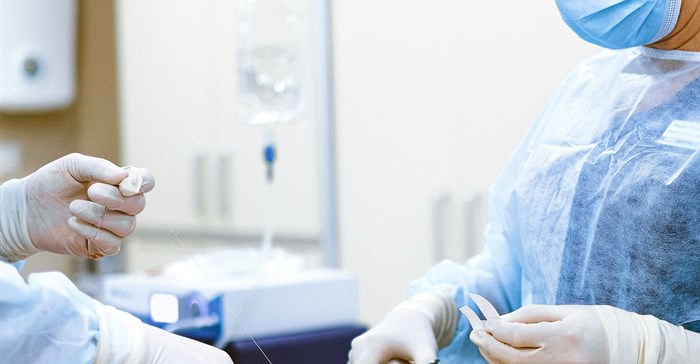The 22nd annual Board of Healthcare Funders' (BHF) conference kicked off at the Cape Town International Convention Centre (CTICC) today (15 May).
A stagnant medical-scheme growth environment, coupled with rampant inequality, the ever-rising high cost of care, and a system that is structurally skewed around profits rather than patient-centricity were just some of the sobering insights shared on this first day.
This year’s conference, themed: “Convergence to a person-centric health ecosystem – leaving no health citizen behind”, has seen the medical scheme industry turn the spotlight on itself in reflection; and the picture painted is dire.
The conference is one of the continent’s largest convenings in the healthcare ecosystem, this year bringing together 350 organisations that represent over 18 countries and with over 1,000 in-person delegates.
Providing an economic perspective on issues pervasive within the industry, Azar Jammine, director and chief economist of Econometrix explained: “The proportion of society (South African) which is covered by medical aid has had the increase from 15.9% in 2002, to 16.1% in 2021. In other
words, hardly any change... the proportion of South Africans who are not covered has remained at 83.7% and we cannot carry on that way indefinitely.”
Today, less than 10% of the Black population in the country has access to medical-aid cover, further entrenching inequality over racial lines. However, at the heart of patient coverage is also the patient journey – which too is often diminished in the way patients are treated within the ecosystem.
Breast-cancer survivor, Margo Riley provided a poignant account of her journey navigating her daunting journey through the industry’s continuum of care over the past 12 years since her diagnosis.
Health professionals’ conduct criticised
Despite her acknowledged privilege of having access to quality diagnostic care and treatment – her despair at the often cold and dismissive care she experienced at both the levels of the health professionals’ conduct, and the frustration of the tiresome administrative processes, were evident.
“...what am I paying a premium for? Am I just a policy number? God forbid anyone goes through this experience. Right now my monthly medical bill is R30,000... what do we do about the 84% of people who don’t have medical aid?” she said.
Having detailed her exhaustive experiences of being directed from pillar to post through ‘faceless’ scheme case-management agents, she recounted that it was only nurses and one doctor in all the years who, “treated me like a human”.
“When you have health, you have hope. And when you have hope, you have life. When you have life, you have everything,” she declared, in a veiled challenge to the sector representatives present to increase accessibility to life-saving health services and improve patient treatment.
Dire need for regional access to medical treatment
This point was underscored heavily as well by award-winning political journalist and anti-corruption activist, Hopewell Chin’ono who spoke about Zimbabwe’s dire and failed health state to provide a regional perspective. “Many Zimbabweans are dying because of a lack of access to treatment and diagnostics... it costs as much as $150 to see a physician... two state hospitals don’t even have paracetamol to provide patients.
"There are no X-ray machines, no radiotherapy machines – and if you have cancer (in Zimbabwe) without this critical diagnostic equipment, you will die. Most Zimbabweans have a funeral policy over a medical aid as though they are just preparing to die.”
He continued, “There is only one working maternity theatre in the country. Every year, 2,500 women die giving birth in Zimbabwe and this has resulted in the mass exodus of local women who run to Messina Hospital in Musina (in Limpopo) out of fear. The post-colonial government has failed to create just one maternity theatre in all these years, and this has created some of the tensions we see between SA and Zim.”
Rajesh Patel, BHF head of health systems strengthening said the following when reminding the medical-scheme industry that the business is meant to be patient-centric, “The business of medical schemes is not simply that of a health short-term insurer and should not be mistaken for one. The business of medical schemes is to ensure the health of their beneficiaries. It is to protect, promote, maintain, and improve their health.”
The conference continues until Wednesday.






































